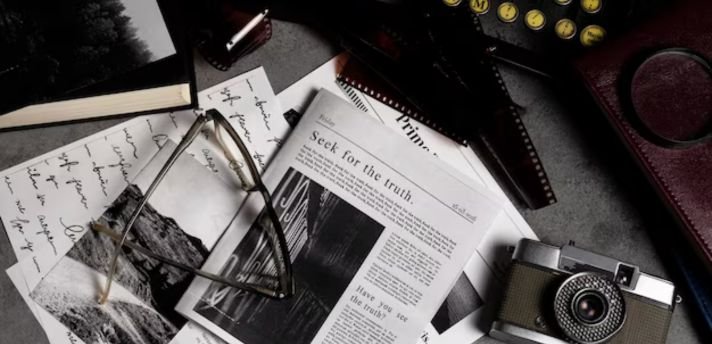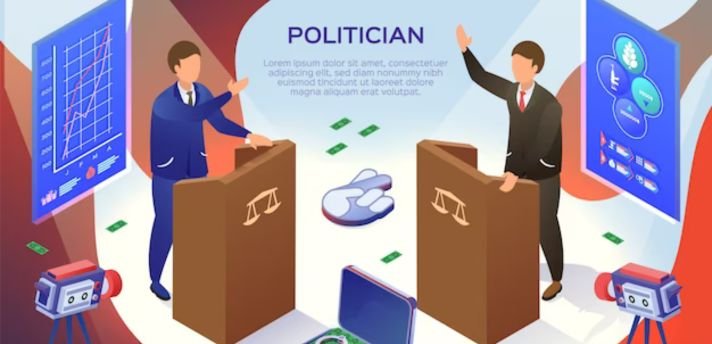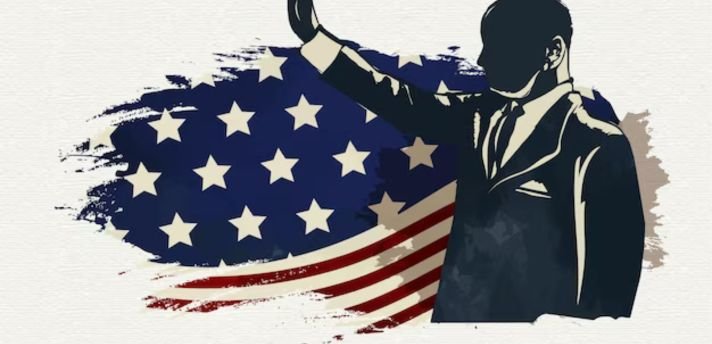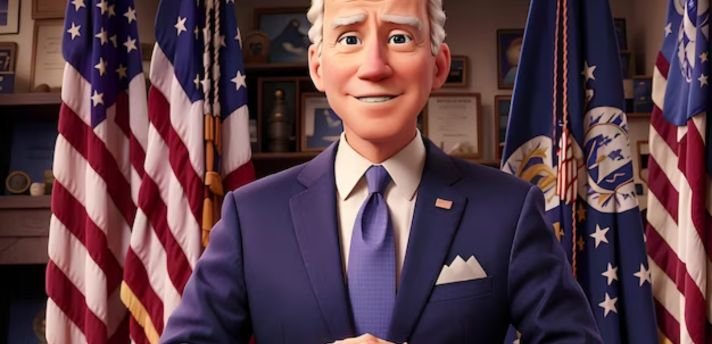


Plagiarism - the act of using someone else's work or ideas without giving proper credit - has ruined careers, reputations, and legacies across various fields. In this expansive blog post, we'll explore some of history's most famous plagiarism scandals and cases involving world leaders, celebrities, academics, journalists, and more.
From Martin Luther King Jr. to Joe Biden, Melania Trump to academics and songwriters, plagiarism has cut short many promising vocations. Intentional or not, plagiarism breaches the trust between the creator and the audience, undermining credibility.
While technology like Plagiarism Checker makes detecting plagiarism easier, high-profile cases continue to emerge, reminding us that plagiarism should be taken seriously.
We'll analyze famous plagiarism incidents through history, their fallout, and their significance. This post also covers more positive cases where amends were made, and careers survived intact, offering hope and a roadmap.
Let's begin unpacking these fascinating plagiarism case studies.

Politics attracts great scrutiny, making plagiarism doubly hazardous. Prominent leaders have seen aspirations dashed and reputations tattered due to copied speeches or books.

Martin Luther King Jr.'s inspirational oratory helped galvanize the civil rights movement. However, his 1955 doctoral dissertation was found to contain large passages from other sources without citation.
A 1991 investigation concluded King acted responsibly, attributing the improper citations to inexperience. The committee refused to revoke his degree, preserving King's legacy.

In 1987, Democratic presidential candidate Joe Biden admitted to plagiarizing portions of a speech by Neil Kinnock, then-leader of Britain's Labour Party.
Further revelations showed Biden had lifted segments from Robert Kennedy's speeches without credit. The scandals derailed Biden's 1988 presidential bid.
However, Biden eventually rebuilt his career, getting elected Vice President in 2008 and President in 2020. He remains a case study in recovering from plagiarism.

Melania Trump’s 2016 Republican National Convention speech as potential First Lady copied verbatim sections of Michelle Obama’s 2008 Democratic convention address.
A staff writer took responsibility and resigned. Melania Trump downplayed the situation as not damaging to her reputation.
Many other politicians like Canada’s former Prime Minister Stephen Harper, Russian President Vladimir Putin, Senator Rand Paul, and Cincinnati Mayor Aftab Pureval have faced plagiarism accusations in speeches and published works.
As public figures, the stakes are high when presenting others' words and ideas as their own original thoughts. Even inadvertent plagiarism gets magnified in the political arena.
Academic integrity matters greatly in higher education. Plagiarism not only undermines learning but can end promising careers.
In 2011, German Defense Minister Karl-Theodor zu Guttenberg resigned when his 2006 doctoral dissertation was discovered to extensively plagiarize other sources without attribution. His PhD was revoked.
Harvard student Adam Wheeler fabricated academic credentials, plagiarized to obtain prizes, and was expelled in 2010.
Such high-profile dissertation plagiarism cases remind students that academic fraud has serious consequences.
Professors are expected to set an ethical example but sometimes fall short:
These cases illustrate the need for vigilance about plagiarism at all academic levels.
From homework assignments to final papers, some students take shortcuts by copying work without citing sources.
With plagiarism detection tools improving every year, students today face greater accountability for academic integrity violations. Offenders face reprimands, failed assignments, suspension, and even expulsion.
Some examples:
Academic plagiarism remains an ongoing challenge, showing students must take research ethics seriously.
Journalists, authors, and writers often rely heavily on research, making source attribution critically important. Several famous cases shed light on plagiarism's severe artistic and professional costs.
Such cases highlight the need for meticulous attribution and fact-checking in publishing and journalism. Plagiarism undercuts audience trust, often permanently.
For musicians, originality is everything. However, disputes and lawsuits frequently erupt over alleged plagiarism of lyrics, riffs, beats, and melodies.
Such cases reveal the legal complexities around plagiarism in music, especially for subconscious copying. Large financial penalties serve as a warning.
Sam Smith's smash “Stay With Me” clearly mimics Tom Petty's 1989 song "I Won't Back Down," resulting in a settled plagiarism complaint.
Beyonce's “If I Were A Boy” closely echoes Ciara’s 2006 single “Like A Boy.” They share a producer, implying creative overlap rather than outright plagiarism.
Ed Sheeran faced multi-million dollar lawsuits alleging his 2014 smash “Thinking Out Loud” copied Marvin Gaye's “Let’s Get It On,” though the case was dismissed.
Coldplay beat a lawsuit claiming their 2008 song “Viva La Vida” plundered guitarist Joe Satriani's 2004 instrumental track “If I Could Fly." The jury found no substantive plagiarism.
Such cases reveal the complexities around music plagiarism.
While lawsuits get settled confidentiality, the disputes spur important discussions around creative borrowing versus infringement.
Plagiarism extends beyond text and music into the visual arts. Fashion designers, photographers, and visual artists have faced backlash for overly imitating others’ work without credit.
High fashion houses frequently reference and find inspiration in each other’s work. However, some cases arguably cross the line:
Fashion moves quickly, making plagiarism hard to avoid. However, established designers do get protection against outright knockoffs harming their brand.
With digital editing, copying photos is easy but still unethical. Lawsuits highlight prominent plagiarism issues:
Photographers increasingly use tools like watermarking to protect against blatant plagiarism. But gray areas remain around fair use and attribution.
Visual arts also deal with plagiarism disputes:
Accusations of stolen styles and compositions still dog artists. Citing inspirations remains vital even when dramatically reinterpreting source material.
Revered authors and historic icons aren't immune from plagiarism controversies. Even with creative leeway, improper attribution can sully legacies.
While deemed inspirational geniuses, these writers crossed ethical lines regarding proper sourcing credit, highlighting subtle plagiarism risks.
The cases explored illuminate patterns around public figures and plagiarism:
The hazards of plagiarism are real, especially with digital detection tools improving constantly. But lessons learned can help restore careers by highlighting integrity and research ethics.
A) Surveys indicate over 50% of middle school and high school students admit to some plagiarism on written assignments using sources without citation. Academic plagiarism remains common on college campuses as well, with 36% of undergrads self-reporting some plagiarism in papers.
A) With plagiarism detection software, getting caught copying others’ work without attribution is increasingly likely in academia and publishing. However, music plagiarism remains hard to prove legally unless copying is obvious and substantial. Appropriating ideas or styles without credit generate criticism but generally avoids penalties.
A) Tools like Plagiarism Checker, TurnItIn, and CopyLeaks compare documents against a huge database of online content and academic material using pattern recognition. They highlight recycled text down to the sentence, flagging probable plagiarism.
A) Yes, it's possible to inadvertently plagiarize through sloppy research methods. However, it still violates ethics and authorial responsibility. Citing all sources, paraphrasing substantive ideas in one's own words, and using quotation marks religiously can avoid accidental copying even without the intention to deceive.
A) Warning signs of possible plagiarism include sudden shifts in writing tone or style in a paper, improperly formatted quotes, or content off-topic from the rest of the work. Experienced professors and editors watch for such red flags indicating portions were copied rather than authored.
The cases explored illuminate patterns around public figures and plagiarism: Intentional deception creates the biggest backlash, especially involving journalists and academics. Failing to cite sources, whether intentionally or due to sloppy research, damages reputations and credibility disproportionately to the offense.
Re-using others’ ideas too liberally even with attribution makes work seem derivative, undermining originality. However, apologizing and making amends can allow figures like Joe Biden and Fareed Zakaria to eventually regain trust, distinguishing one-time mistakes from systematic fraud.
The hazards of plagiarism are real, especially with digital detection tools improving constantly. But lessons learned can help restore careers by highlighting integrity and research ethics.